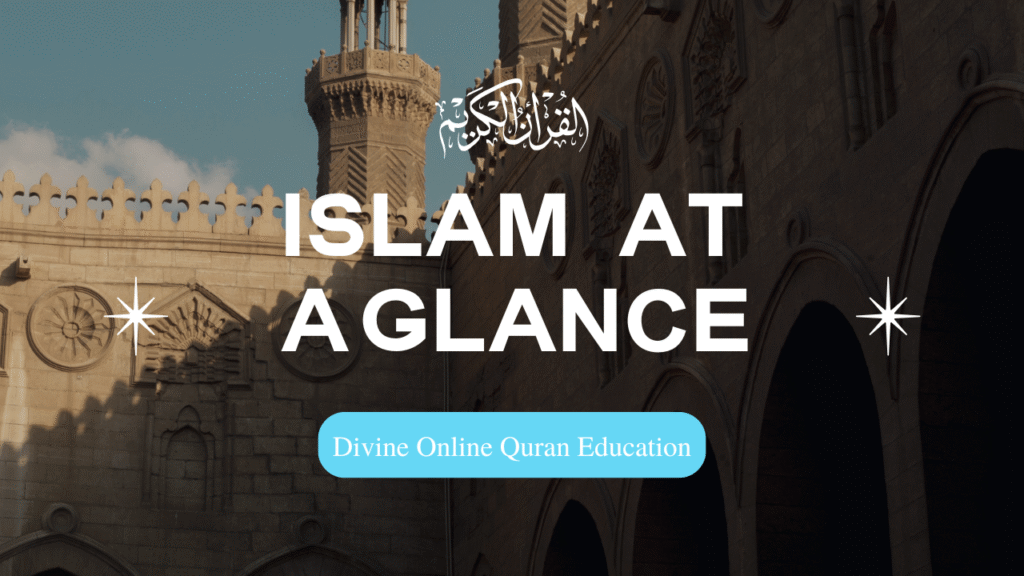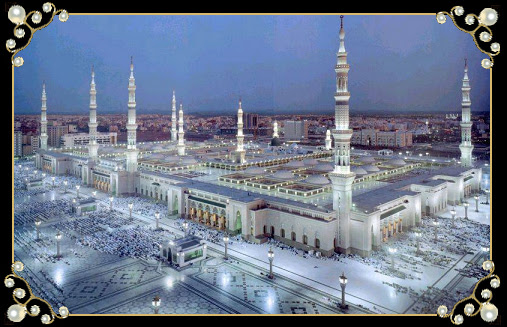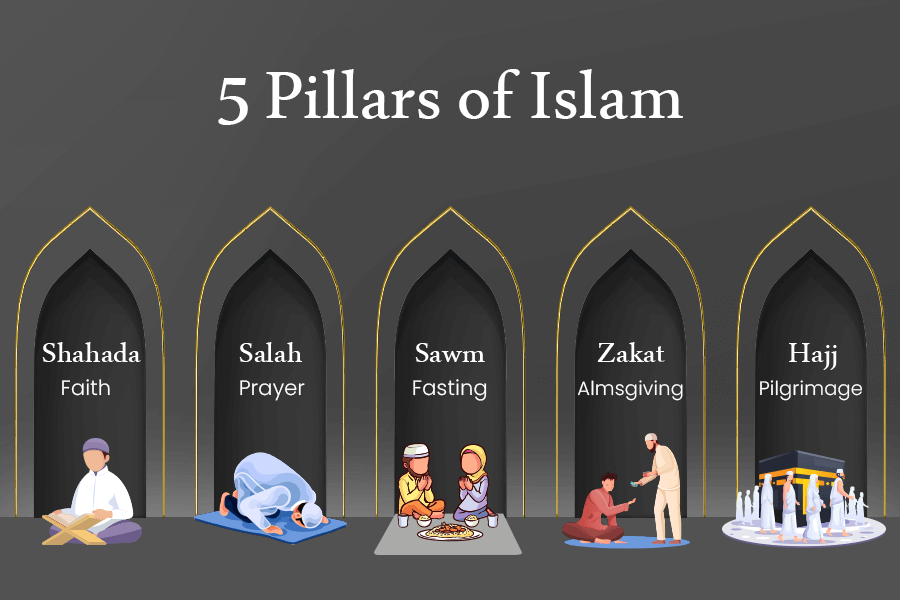
The Meaning of Islam
The word “Islam” comes from the Arabic root “slm” which means peace, submission, and obedience. Islam is the religion of fully accepting and following God’s guidance as revealed to the Prophet Muhammad (peace be upon him).
A Muslim is someone who believes in the Oneness of Allah and that Muhammad (peace be upon him) is His final Messenger. A Muslim tries to live life according to the Qur’an and the teachings (Sunnah) of the Prophet. The term “Muhammadanism” is incorrect and goes against the true meaning of Islam.
“Allah” is the Arabic name for God. It is special because it has no plural or gender.

Continuity of the Message
Islam is not a new faith. It is the same message that God sent to all prophets throughout history.
“Say: We believe in Allah and what was revealed to us and to Abraham, Ishmael, Isaac, Jacob, and the tribes, and what was given to Moses, Jesus, and the other prophets from their Lord. We make no distinction between them, and to Him we submit.” (Qur’an 3:83)
The message given to Prophet Muhammad (peace be upon him) is the final and complete version of that same
message.
The Five Pillars of Islam

Prayer (Salah):
Muslims pray five times a day. These prayers help strengthen faith and keep a person away from wrong actions.
Believing and declaring that there is no god but Allah and Muhammad (peace be upon him) is His Messenger.
Declaration of Faith (Shahadah):
Every good action done with the intention of pleasing Allah is considered worship in Islam.
Charity (Zakah):
Muslims give a small portion (usually 2.5%) of their yearly savings to help those in need. It purifies wealth and supports the community.
Pilgrimage (Hajj): Every Muslim who can afford it should make a pilgrimage to Mecca at least once. Hajj brings Muslims from all over the world together.
Fasting (Ramadan):
Muslims fast from dawn until sunset during Ramadan. They avoid food, drink, and bad behaviour. Fasting teaches self-control, patience, and empathy.
Belief in One God
Islam teaches belief in the One God, Allah, who created everything. This belief gives meaning to life and frees people from fear, superstition, and inequality.
Islam rejects the idea that only a specific group of people are chosen. Instead, it teaches that anyone who believes in God and does good can succeed in the hereafter.
In Islam, there is no need for an intercessor between a person and God—each person has a direct connection with Allah.
Human Beings: Free to Choose
Humans are God’s best creation. We are given freedom to choose right or wrong. God has shown us the right path through His revelations and the example of Prophet Muhammad (peace be upon him).
Islam teaches that all humans are equal, regardless of race, gender, or background. The law of God, as found in the Qur’an and the Prophet’s life, applies equally to everyone.
Qur’an and Hadith
The Qur’an means “reading” or “recitation.” It is the word of God revealed to Prophet Muhammad (peace be upon him) in Arabic. It is the main source of Islamic guidance. It covers beliefs, morality, worship, law, history, and social matters.
Prophet Muhammad (peace be upon him) could not read or write, but the Qur’an was memorized and written down by his followers during his lifetime. It remains unchanged and available in Arabic with translations in many languages.
The Hadith, or sayings and actions of the Prophet, help explain the Qur’an. Hadiths are a second source of Islamic teachings and are divided into those that are directly from God (Qudsi) and those from the Prophet himself.
Concept of Worship
Worship in Islam is not only about rituals. True worship means knowing and loving God, living by His commands, helping others, and promoting justice.
“It is not righteousness that you turn your faces towards the East or the West, but righteousness is in one who believes in Allah, the Last Day, the Angels, the Book, and the Prophets; and gives wealth out of love for Him to relatives, orphans, the needy, travelers, beggars, and to free slaves; who establishes prayer, gives Zakah, keeps promises, and is patient in hardship. These are the truthful and God-fearing.” (Qur’an 2:177)
Islam: A Way of Life
Islam offers complete guidance for all areas of life—social, spiritual, political, and economic. It teaches people their responsibilities to themselves, their families, society, and their Creator.
Islam promotes a balanced life. It doesn’t separate religion from daily living; instead, it blends spiritual and worldly life into one unified purpose.
A Brief History
Prophet Muhammad (peace be upon him) was born in Mecca in 570 CE. He received his first revelation at the age of 40. Due to strong opposition, he and his followers moved to Medina, where Islam grew. In 23 years, he delivered the full message of Islam and passed away at 63. His life is the best example for all Muslims to follow.
Islam and Logic
Islam is simple, clear, and appeals to reason. It offers real solutions to the problems people face in life and connects all aspects of life with a clear purpose—pleasing God.
Islam’s Relevance Today
Racism:
While science has advanced, racism is still a problem. Islam offers a real solution through its teachings on equality and unity. During Hajj, people of all races come together in worship, showing practical unity.
Family System:
In many societies today, the family is falling apart. Islam’s family system balances rights and responsibilities for everyone—parents, children, and relatives. It builds love and cooperation.
Islam’s View of Life
Islam teaches that all parts of life are connected. It removes the conflict between religion and modern life, between science and spirituality. Islam offers a complete and balanced way of living with harmony and purpose.
